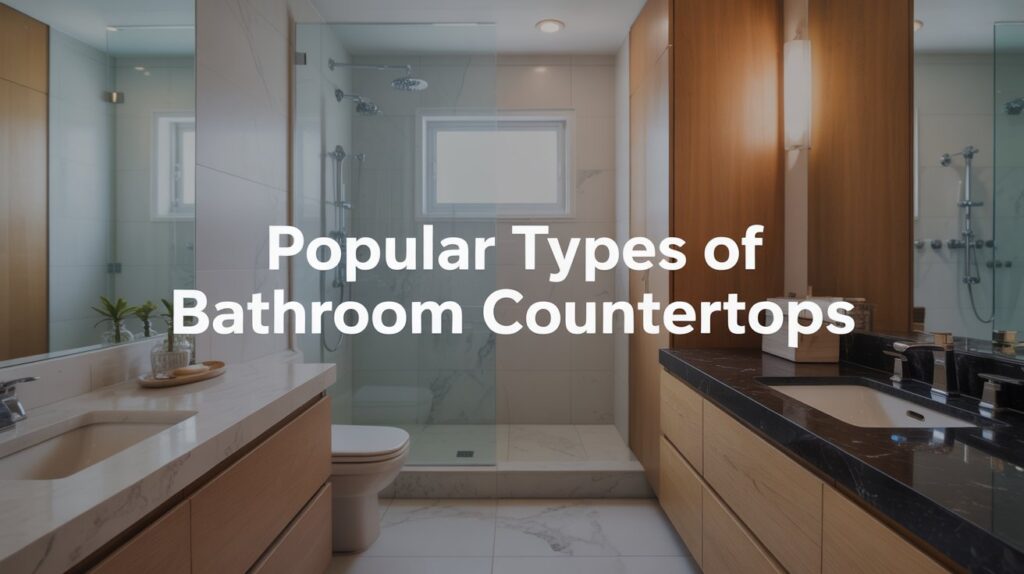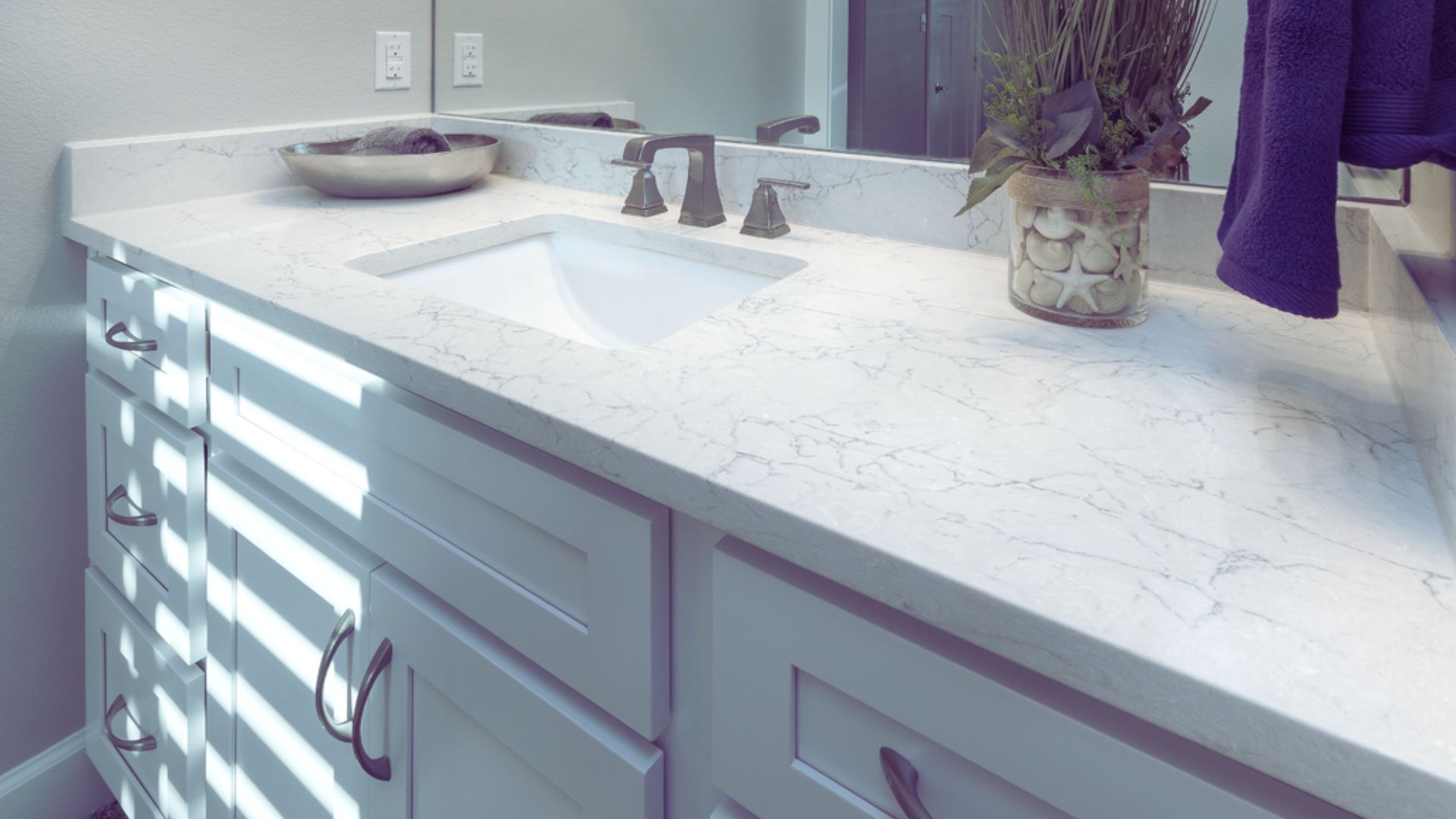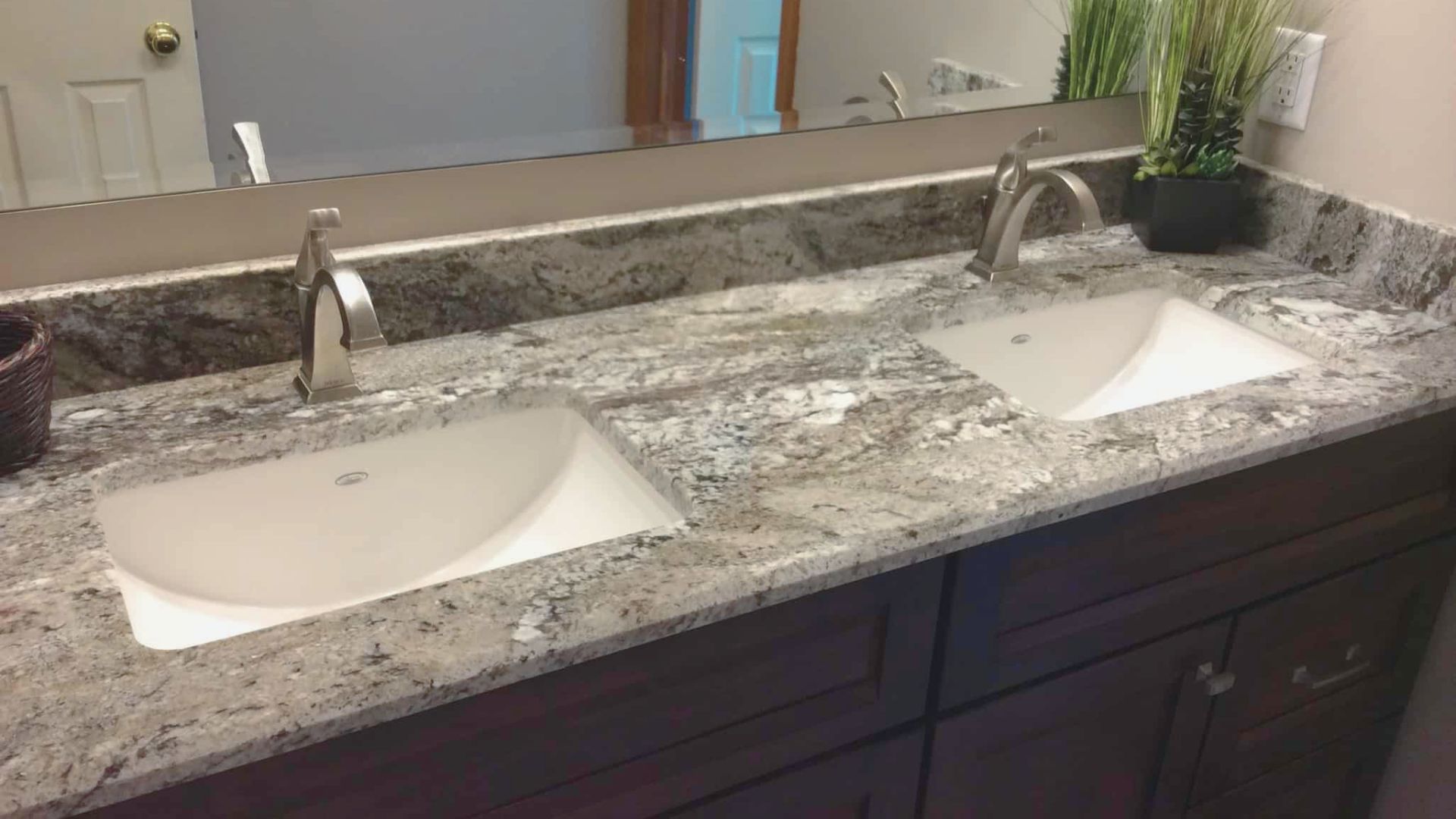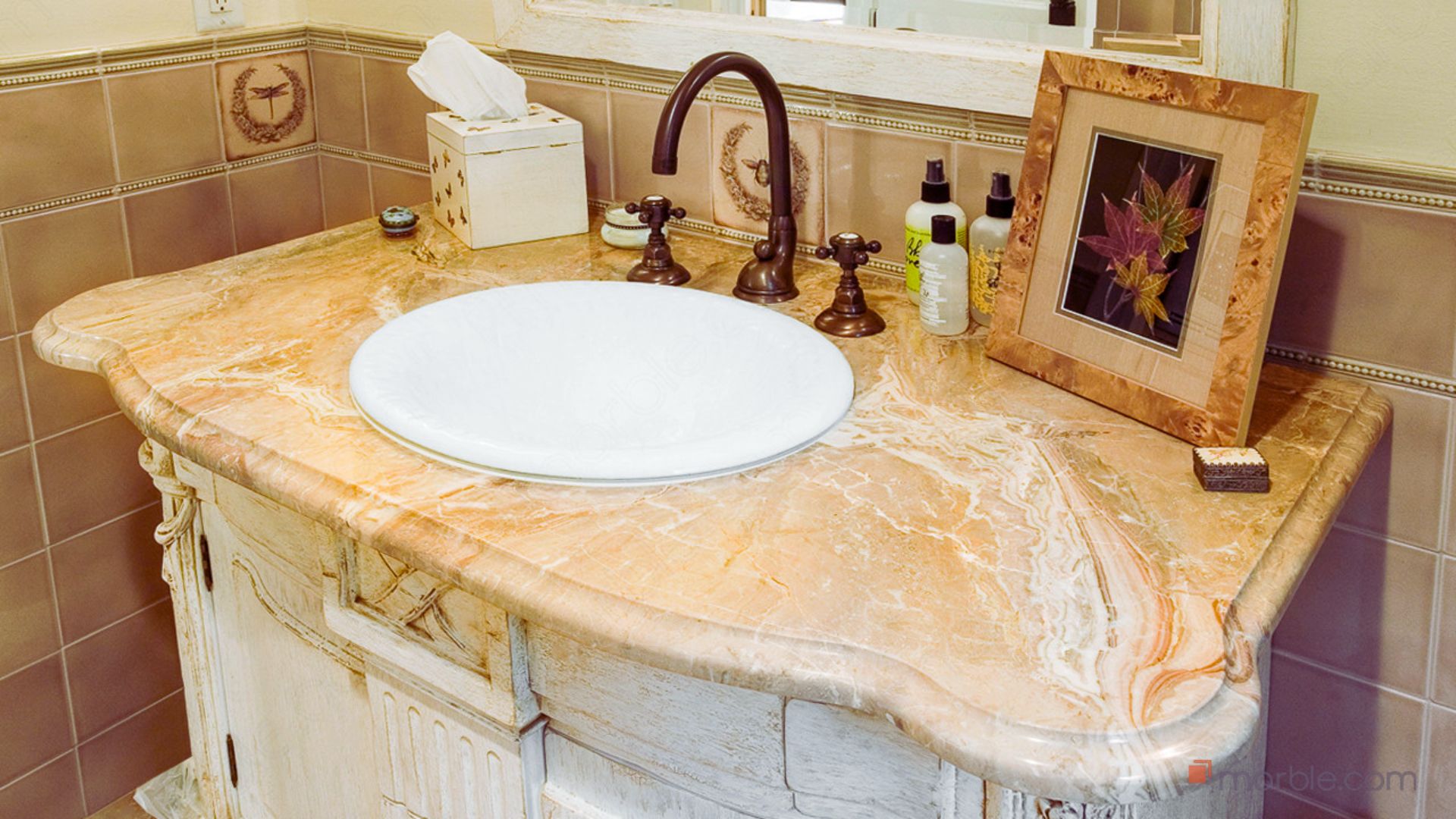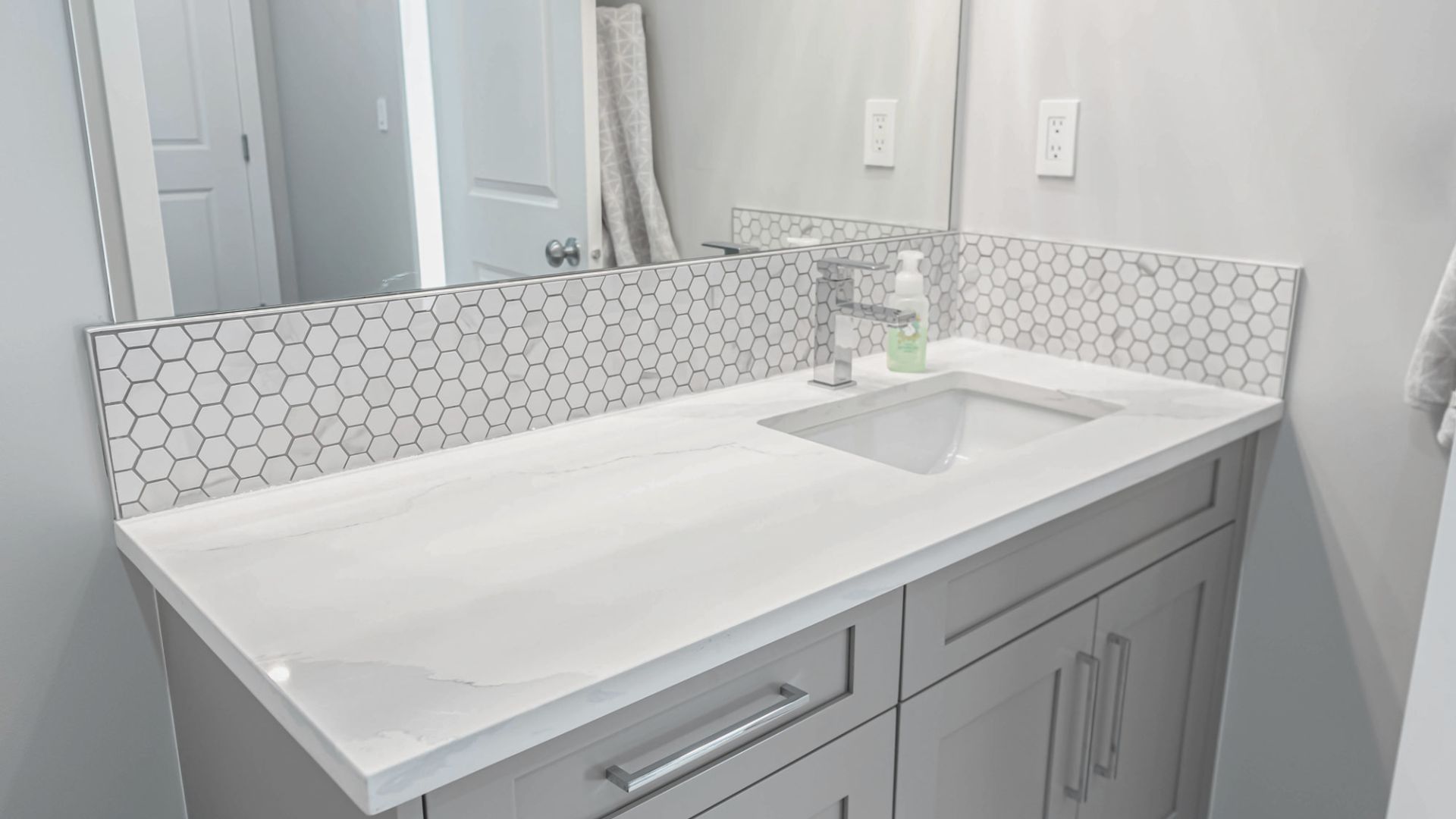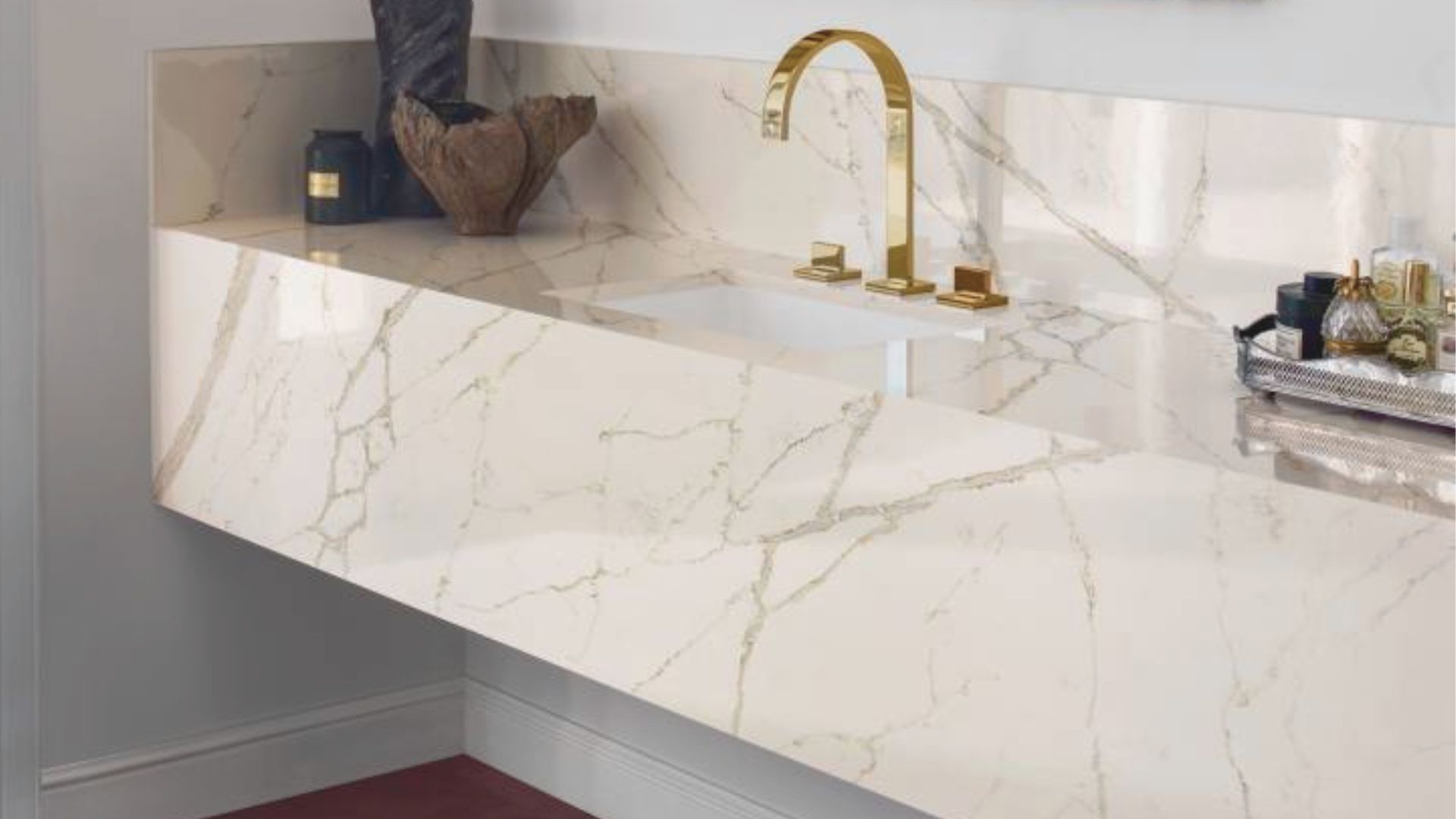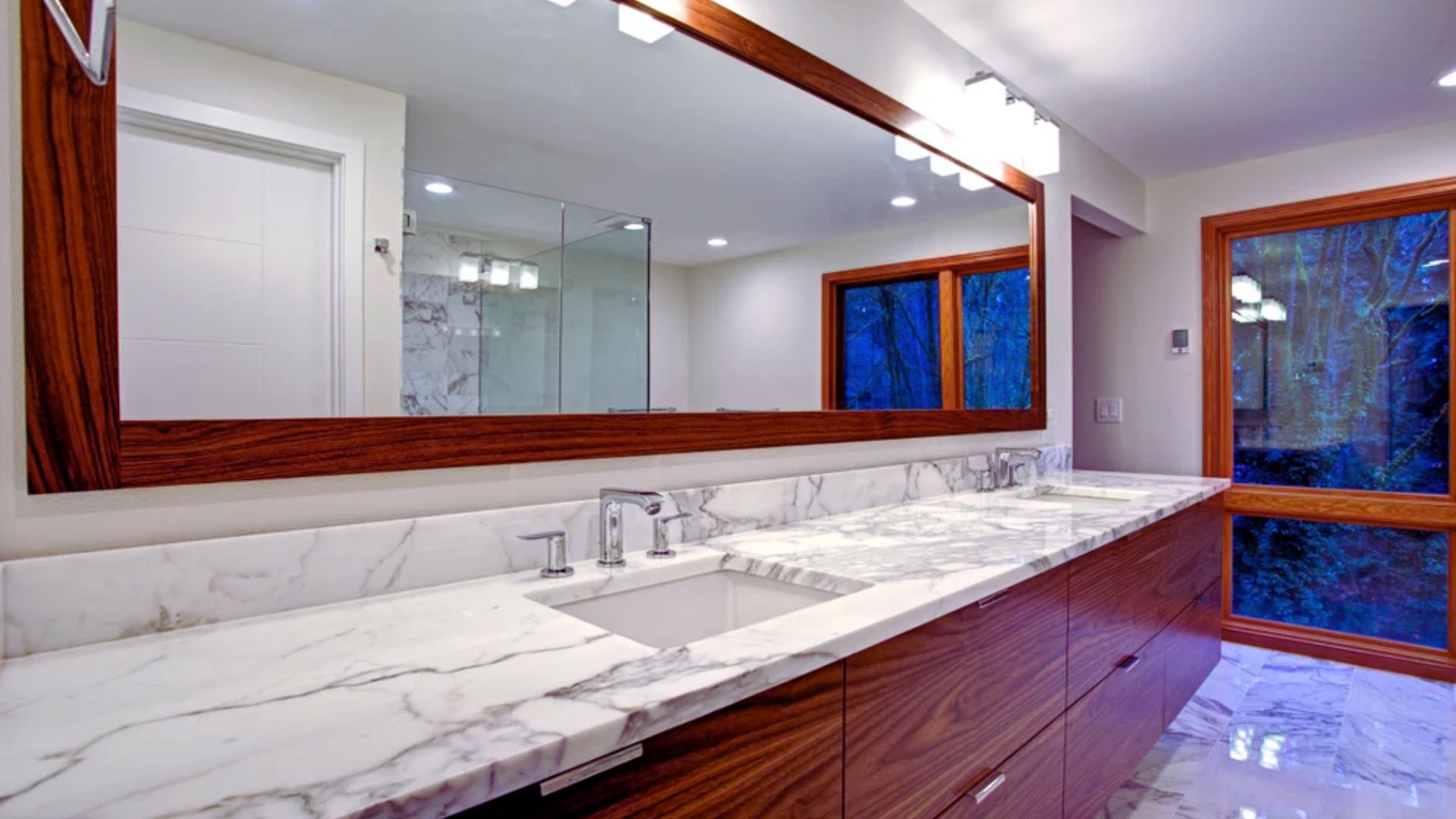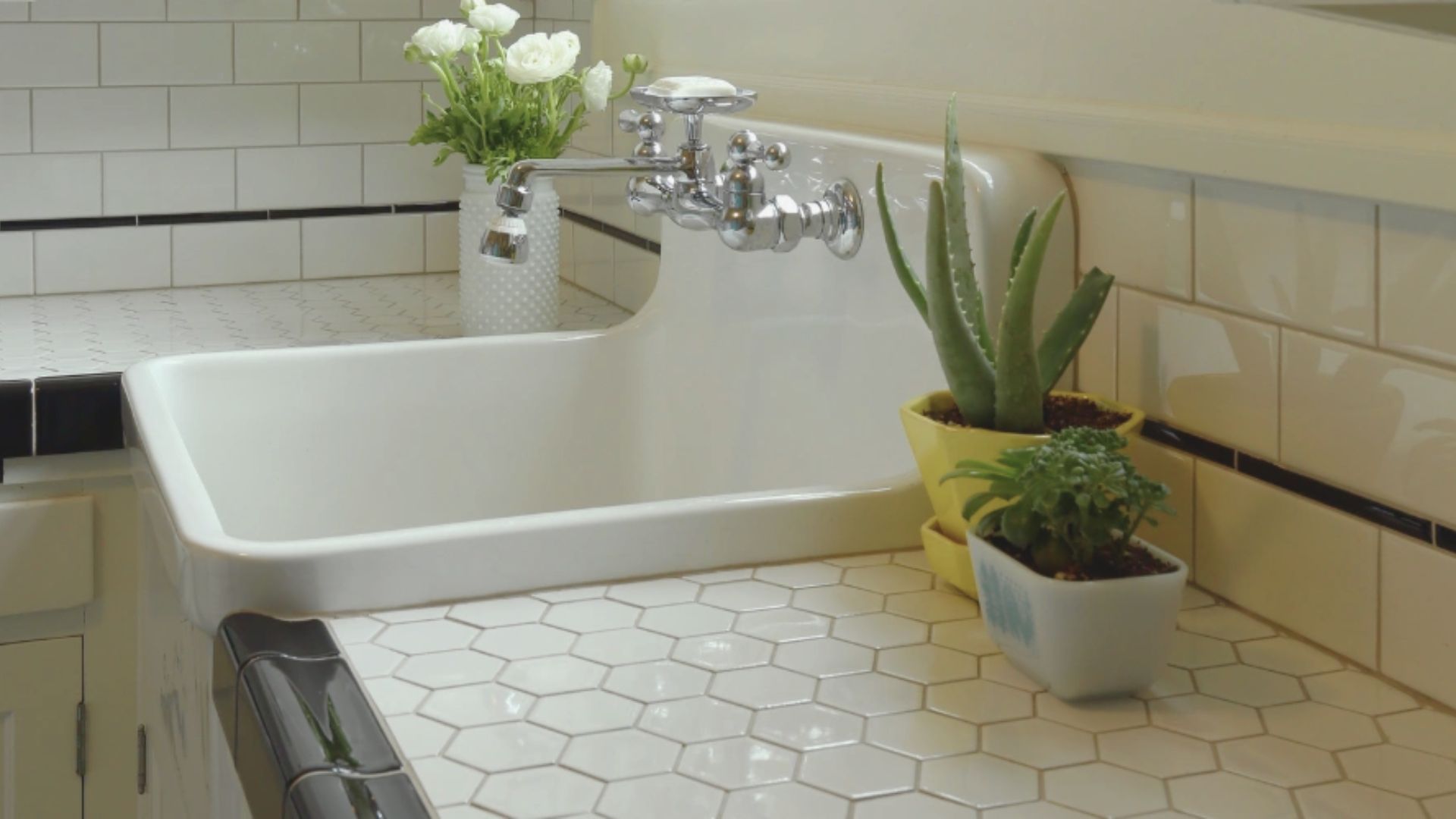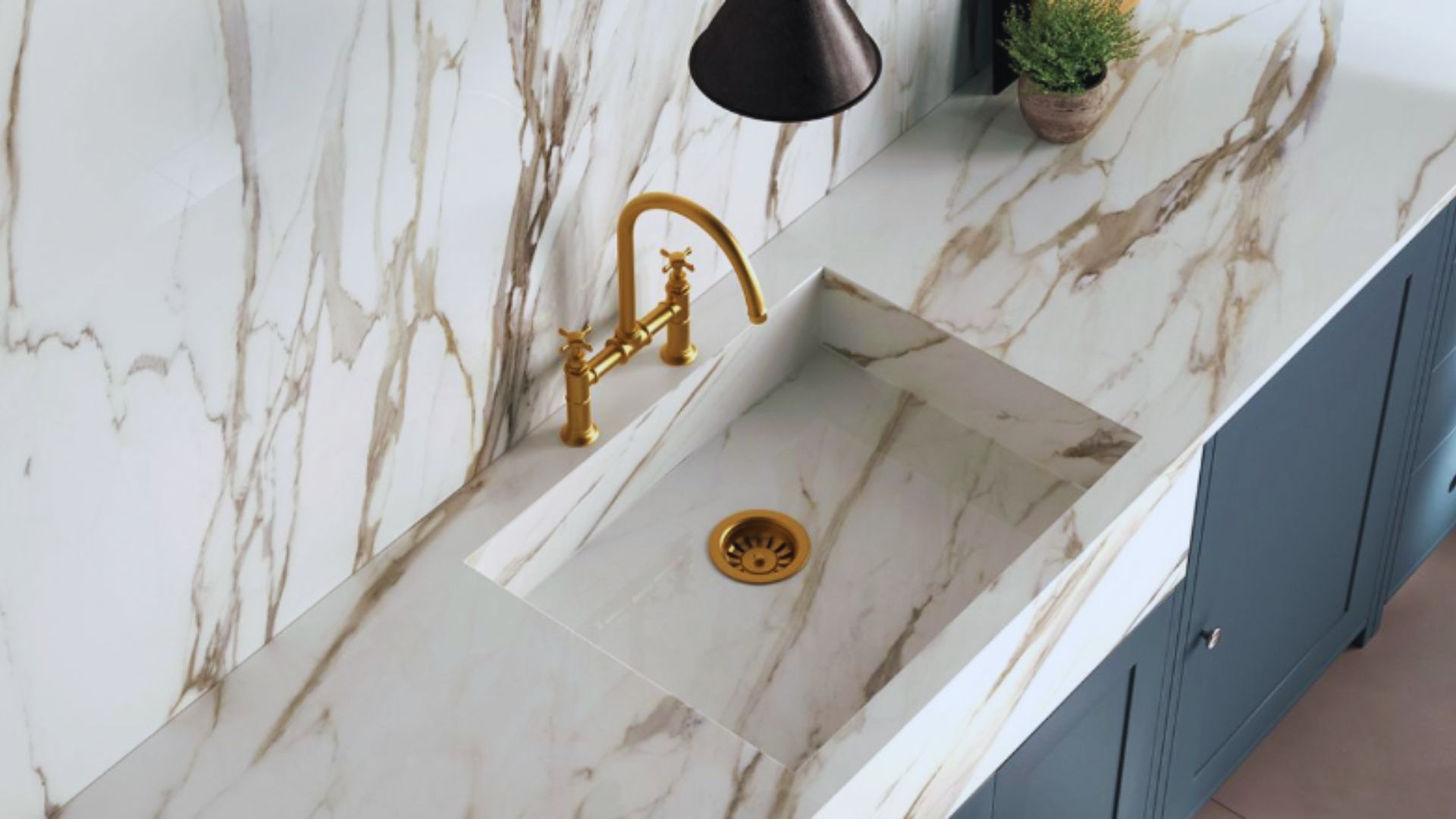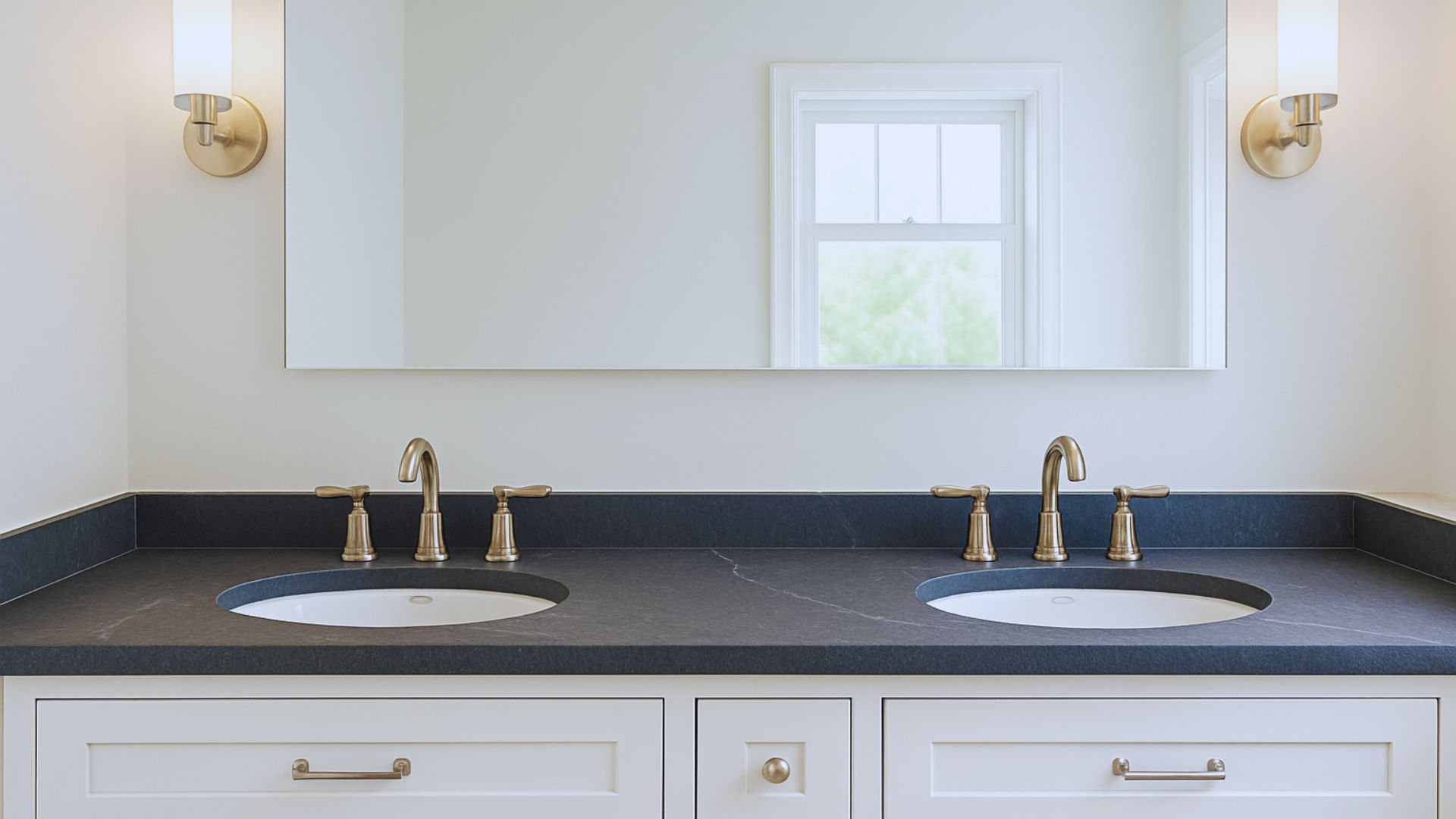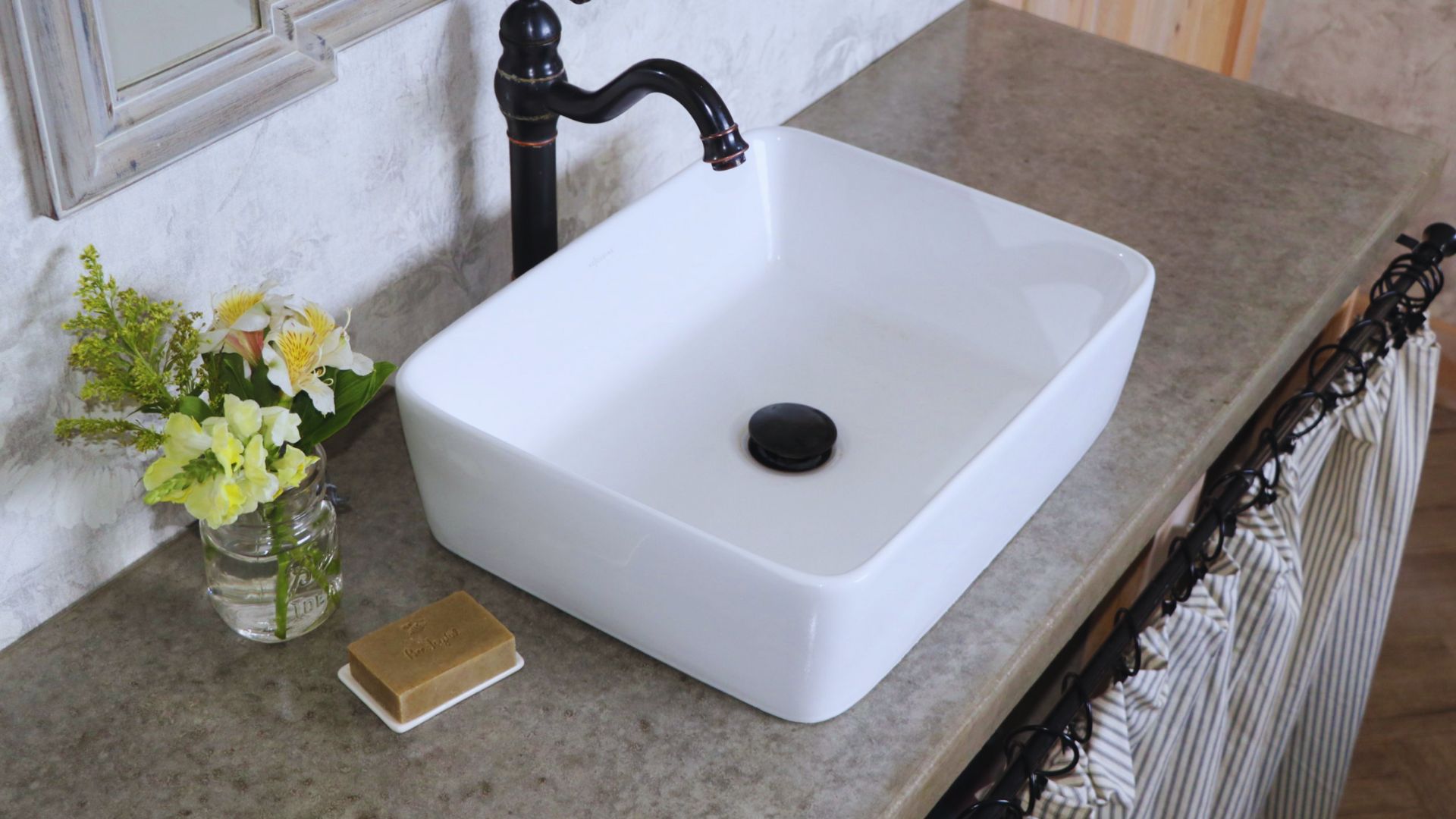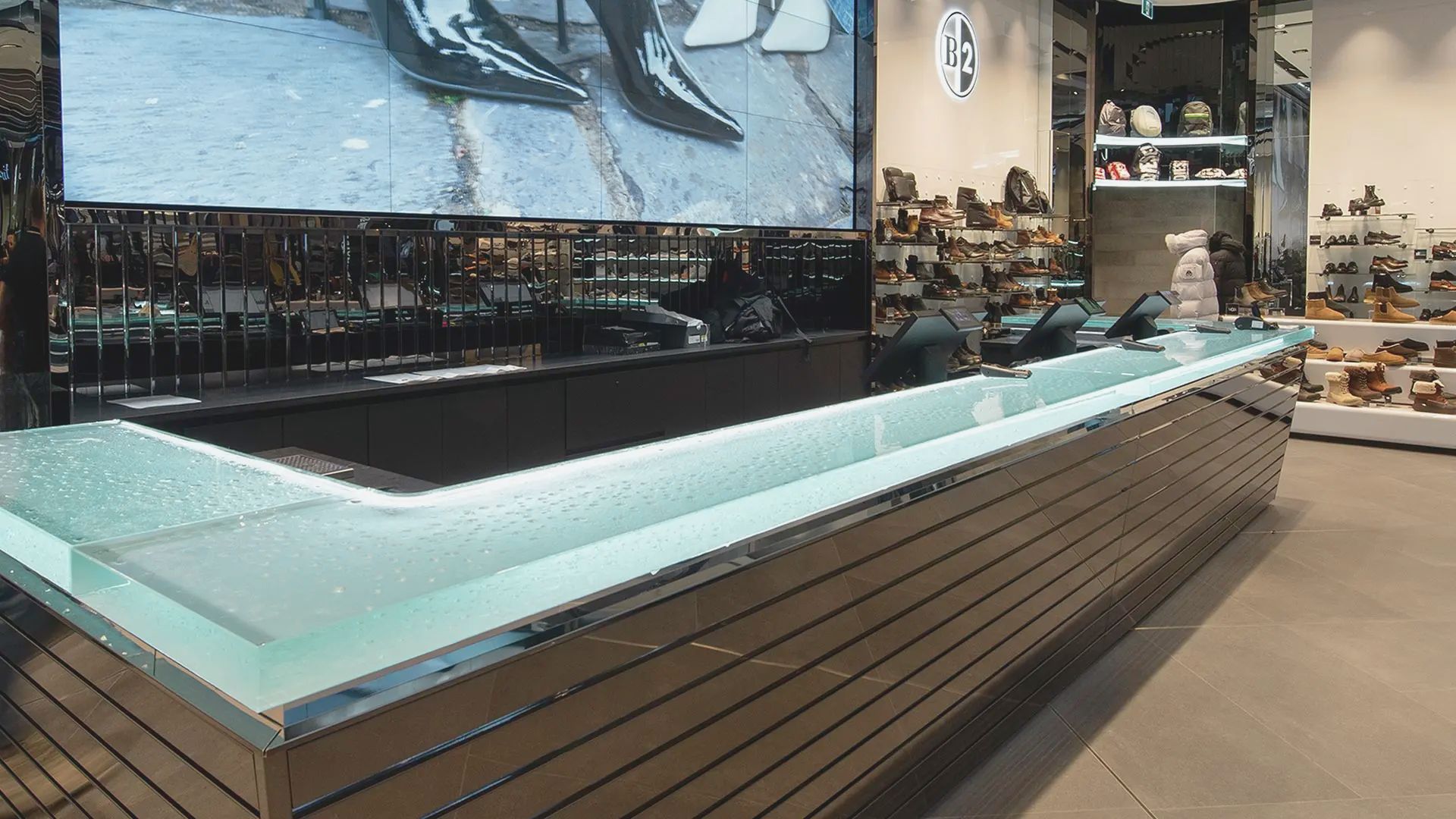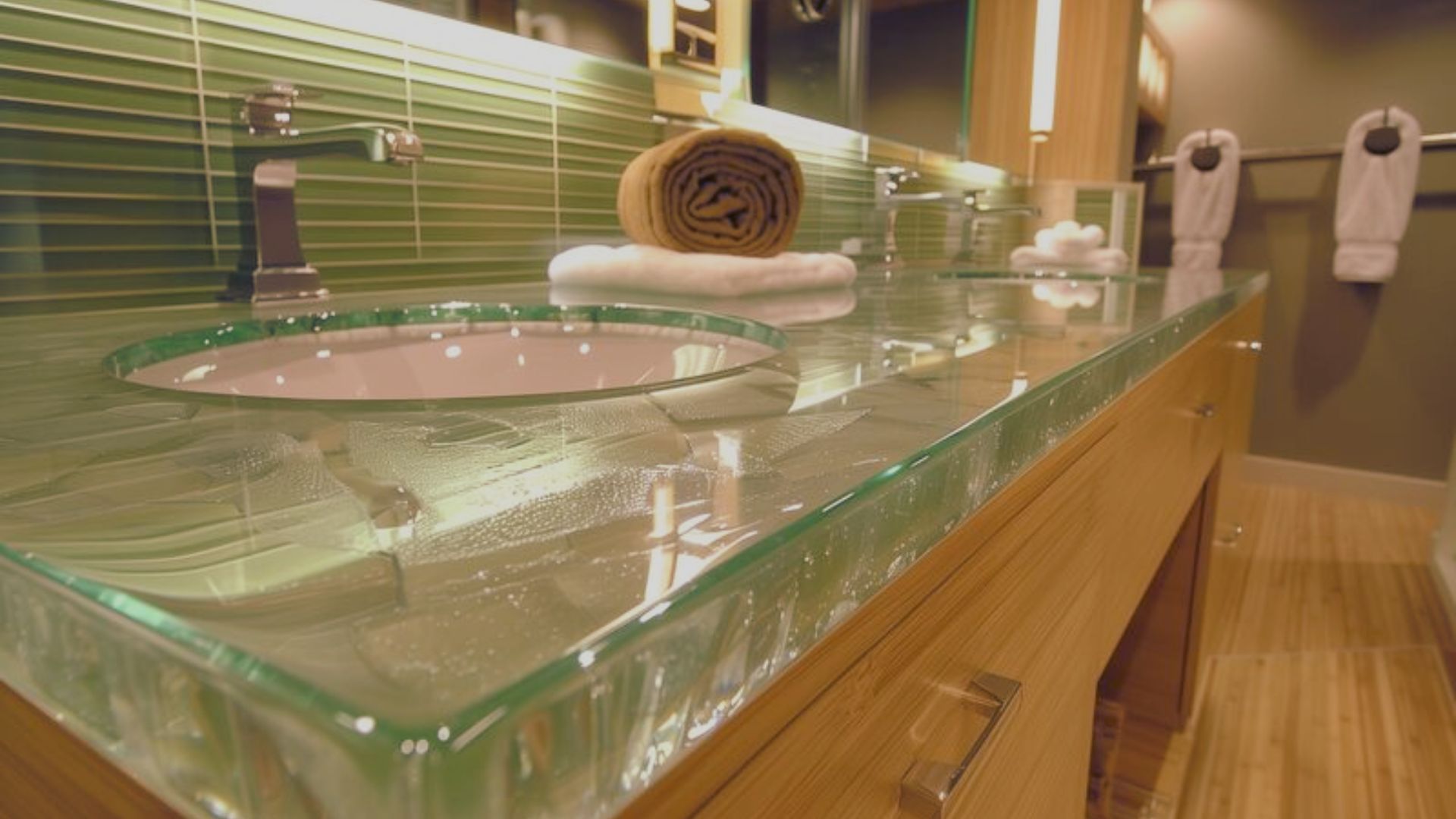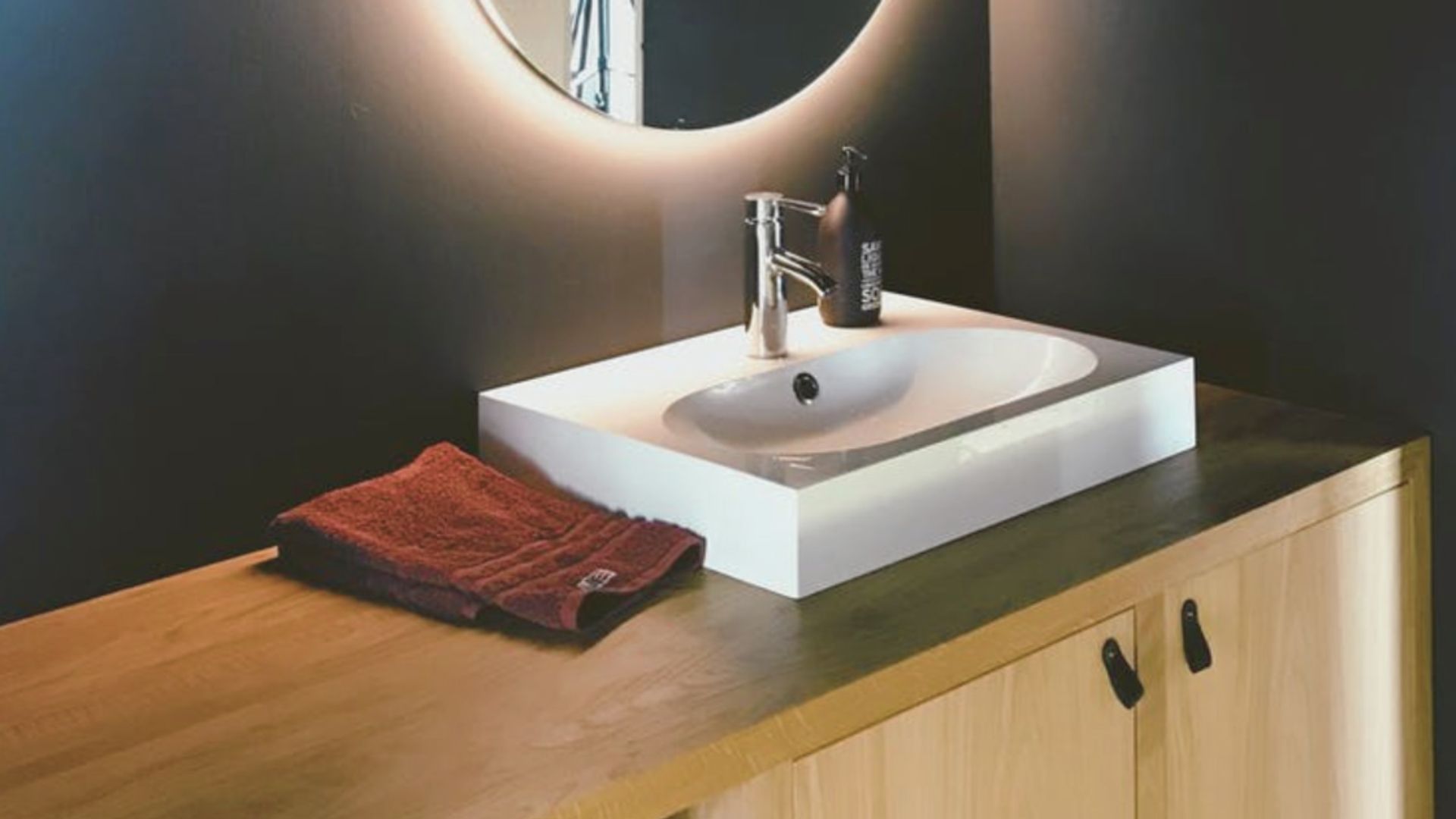Picking the right bathroom countertop can save you thousands in repairs and headache down the line. So today I’m walking you through 13 kinds of bathroom countertops that actually work in real homes.
I’ve installed everything from low-budget to high-end custom builds. Some materials may be easily stained. Others chip within months.
This is a guide to granite, quartz, marble, laminate, and nine other solid surface products I have seen work (and fail) in hundreds of bathroom projects.
You’ll know what your budget, lifestyle, and space requirements can accommodate.
Factors to Consider When Choosing a Bathroom Countertop
Picking a countertop isn’t just about looks. Your bathroom gets wet daily, so choose materials that handle moisture, scratches, and heat well. Stain resistance keeps surfaces looking fresh for years.
Some materials need sealing once or twice yearly. Others just need soap and water. Consider repair needs too. Can you fix damage yourself, or will you need help?
Countertops range from under $20 to over $200 per square foot. Laminate works great for tight budgets. Marble or quartz costs more but lasts longer. Factor in installation and long-term value.
Match your countertop to your bathroom’s style. Light colors make small spaces feel bigger. Dark tones hide water spots. Think about veining, texture, and thickness for the right feel.
13 Popular Types of Bathroom Countertops
Let’s look at each material so you can see what fits your needs.
1. Quartz
Quartz countertops combine crushed stone with resin to create a durable surface. They don’t absorb water or stains because they’re non-porous. You won’t need to seal them ever. Quartz comes in countless colors and patterns, from solid white to marble-like designs.
The downside is the higher price tag. Direct heat from curling irons can leave scorch marks, so use a heat pad. Quartz works perfectly for busy family bathrooms where you need something that looks good without constant maintenance. Modern designs shine with quartz countertops.
2. Granite
This natural stone brings unique beauty to any bathroom. No two granite slabs look exactly the same. The material handles heat well and resists scratches from daily use. Granite gives you that high-end look people notice immediately.
You’ll need to seal granite every year or two to keep it water-resistant. The cost runs higher than many alternatives. Classic bathrooms and high-traffic spaces benefit most from granite’s strength. The investment pays off in durability and timeless appeal.
3. Marble
Marble brings luxury with its distinctive veining and smooth surface. The natural stone stays cool to the touch and resists heat damage. It creates a focal point in any bathroom design.
However, marble is porous and stains easily from toothpaste, makeup, or hair products. It requires regular sealing and gentle cleaning products.
Acidic substances like lemon juice can etch the surface. Choose marble for high-end bathrooms where you’re committed to careful maintenance. Beauty rewards your efforts.
4. Laminate
Laminate offers the most budget-friendly option on this list. It’s lightweight and comes in hundreds of patterns that mimic pricier materials. You can often install it yourself without professional help. Modern laminates look much better than older versions.
The material scratches more easily than stone or quartz. Water can seep into seams and cause delamination over time.
Heat damage happens if you place hot tools directly on the surface. Laminate makes sense for guest bathrooms or rental properties where you need to keep costs down.
5. Solid Surface (e.g., Corian)
Solid surface materials let you create seamless designs with integrated sinks. Scratches and minor damage can be sanded out and repaired at home. The non-porous surface resists stains and bacteria growth. You get many color and pattern choices.
Hot items can damage solid surfaces, leaving permanent marks. Some people find the material looks too artificial compared to natural stone.
Scratches show more on darker colors. Contemporary bathrooms benefit from the clean, customizable look that solid surfaces provide.
6. Cultured Marble
This material combines crushed marble with resin to create an affordable alternative to real marble. It’s non-porous, so spills wipe away easily.
The smooth surface resists stains better than natural marble. You get the luxe marble look without the high maintenance.
Color options are more limited than natural stone. Heat resistance falls short of real marble. The resin can yellow over time with some products.
Cultured marble works great when you want style on a budget. It delivers beauty without breaking the bank.
7. Ceramic Tile
Ceramic tiles give you unlimited design possibilities. You can create patterns, mix colors, or use decorative accents. The material costs less than most solid surface options. DIY installation saves money if you’re handy with tools.
Grout lines are the main problem. They collect dirt and stain over time, requiring regular cleaning and resealing. Tiles can crack if heavy objects drop on them.
Resale value typically runs lower than solid countertops. Budget-conscious remodels work well with ceramic tile, especially when you’re doing the work yourself.
8. Porcelain Slab
Porcelain slabs offer incredible durability that rivals natural stone. They resist scratches, stains, and heat damage. Modern manufacturing creates realistic stone and marble looks. The low-maintenance surface needs only basic cleaning.
The cost matches or exceeds natural stone options. Chips along edges can happen during installation or use. Professional installation is strongly recommended because of the material’s weight and hardness.
Sleek, modern bathrooms look beautiful with porcelain slabs. The investment brings long-lasting beauty.
9. Soapstone
Soapstone provides a unique, soft appearance with natural depth. It’s completely non-porous, so water and stains don’t penetrate. The material handles heat without damage. Over time, it develops a rich patina that many people love.
Color choices stay within gray and dark green tones. You need to apply mineral oil regularly to maintain the dark color. Light scratches appear easily but can be sanded out.
Rustic or traditional bathroom styles pair perfectly with soapstone’s character. The material ages beautifully with care.
10. Concrete
Concrete countertops offer total customization in shape, color, and finish. They’re incredibly durable when properly sealed. You can create seamless designs without visible joints. The modern, industrial look makes a bold statement.
These countertops are heavy and require strong cabinet support. Cracks can develop over time and are difficult to repair invisibly.
Regular sealing is necessary to prevent stains. Industrial or designer bathrooms show off concrete’s unique style. The material demands commitment to maintenance.
11. Tempered Glass
Glass countertops bring a sleek, contemporary vibe to bathrooms. The surface cleans easily with standard glass cleaner. You can customize colors, including backlit options for drama. The smooth surface doesn’t harbor bacteria.
Scratches show clearly on glass surfaces. Chips along edges can occur with impact. Heat resistance is lower than stone options. The cost runs high for quality tempered glass.
Contemporary, high-style bathrooms benefit most from glass countertops. They create a floating, light appearance.
12. Crushed Glass
Crushed glass countertops catch light and create eye-catching sparkles. The recycled material offers an eco-friendly choice. Each piece looks completely unique. Cleaning requires only soap and water for most types.
Some varieties are more brittle than others. Many types need sealing to prevent staining. The price compares to high-end stone options.
Designer bathrooms or statement pieces shine with crushed glass. The material becomes a conversation starter.
13. Wood
Wood brings warmth and natural beauty that other materials can’t match. You can stain or finish it to match any decor. The material is renewable and eco-friendly. Custom designs let you create exactly what you want.
Wood requires regular sealing to protect against water damage. Heat from styling tools leaves marks. Scratches happen more easily than with stone.
Water resistance remains a constant concern even with sealing. Spa-style or rustic bathrooms pair beautifully with wood countertops. The organic feel creates a relaxing atmosphere.
How to Choose the Right Bathroom Countertop for You
Narrowing down your choice gets easier when you focus on what matters most.
- Think about who uses your bathroom daily. A family with kids needs something durable that handles spills and bumps. Some materials demand regular sealing while others need almost nothing. Choose based on your real habits, not ideal ones.
- Light countertops make small bathrooms feel more spacious. Dark surfaces hide water spots and create sophistication. Reflective materials like glass or polished stone bounce light around the room. Consider how thickness affects the overall feel.
- Determine what you can spend per square foot. Remember to include installation costs in your calculations. Cheaper materials might cost more over time if they need frequent replacement. Balance immediate affordability with long-term value.
- Laminate and ceramic tile work for confident DIYers. Granite, quartz, and porcelain require professional tools and expertise. Be honest about your skill level before committing to self-installation.
- Professional work ensures proper support and finish. Mistakes during installation can be expensive to fix. Sometimes the expert touch saves money in the long run.
Conclusion
What do you prefer for your bathroom countertops? Do you love the classic formality of marble? Is quartz a better fit within your lifestyle?
When you wake up, consider what will bring joy. Do this on each daily basis. Follow your gut inside, touch samples, and see colors together in your space.
Did you find a favorite among them?
Let us know in the comments below now, and share this with a friend who needs a fresh look! Your perfect counter is waiting!
Frequently Asked Questions
What is the most durable bathroom countertop material?
Quartz and porcelain slabs offer the best durability for bathrooms. Both resist moisture, scratches, and stains without needing sealing.
Do I need to seal my bathroom countertop?
Natural stone like granite, marble, and soapstone needs regular sealing. Quartz, porcelain, and solid surfaces never require sealing.
What is the cheapest bathroom countertop option?
Laminate and ceramic tile are the most affordable choices. Both start under $20 per square foot and work well for DIY installation.
Can I install a bathroom countertop myself?
Laminate and ceramic tile are suitable for DIY installation. Heavy materials like granite and quartz require professional installation due to their weight.
How often should I reseal my granite countertop?
Granite needs resealing every one to two years. Test by dropping water on the surface to see if it beads up or absorbs.

